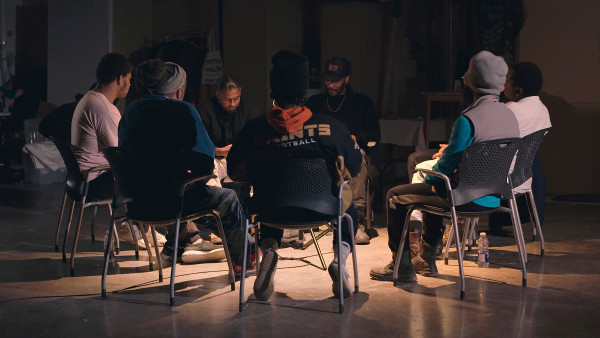Globally, dysthymia - a type of depression presently known as persistent depressive disorder (PDD), is one of the top 21 leading causes of disability. Since the pandemic, an estimated 15.2 percent of people in Canada suffer from major depressive disorder (MDD).
Despite the evidence that depression affects everyone, there still lingers this common misconception which purports, according to some Black people and even myself at one point before my studies, we do not suffer from some “White person” illness like depression. As a Ph.D. student in Public Health Sciences and registered social worker running my private psychotherapy/counselling practice, this article is to help explain but also counter this depression myth and provide educational information on depression.
What is Depression?
Depression is in the mental illness family of “mood disorders” and is defined as experiencing low mood/spirit, in conjunction with other related symptoms. The “cause” of depression is complex involving many factors including those that are biological, genetic, environmental, and nutritional.
Biologically, low dopamine and serotonin levels for instance- two neurotransmitters i.e. messengers in the central nervous system responsible for many functions including mood- in the brain have been associated with the development of depression. Pregnancy-induced biological changes can further increase the risk of experiencing depression for women. These changes can occur considering the numerous hormonal changes that occur perinatally and post-partum, hence, “giving birth” to the phenomena of perinatal and postpartum depression.
Genetically, the risk of developing depression is higher when it runs in families. Although the specific genetic process increasing the risk of depression remains unknown, some research points to possible mutations in certain genes implicated in the causal pathway of depression.
Environmentally, inclusive of psychological and social factors, stressful environments such as living in violent neighbourhoods, being in racist workplaces or being in unhealthy i.e., “toxic” intimate and even familial relationships have been associated with the onset of depression, including perinatal and postpartum depression.
Nutritionally, reduced exposure to sunlight- which limits vitamin D exposure, frequently eating nutrient-deficient foods like “junk food” or not eating enough foods rich in iron, omega-3 fatty acids, vitamin D and other essential vitamins like vitamin C, have all been associated with increasing the risk of depression.
What does Depression look like?
In North America, the Diagnostic Statistical Manual 5th edition (DSM-5) is the go-to, yet controversial mental health manual used to diagnose mental conditions in North America. According to this manual, to be formally diagnosed with MDD, the individual must experience low or depressed mood or loss of pleasure and at least 5 or more of the following symptoms for a lengthy period, with most mental health professionals suggesting this period to be two weeks:
- Significant weight loss or gain
- Appetite changes (eating more or less than usual)
- Frequent fatigue or loss of energy
- Restlessness or slowed-down movement
- Increased irritability
- Self-worth problems
- Problems concentrating
- Suicidal thoughts and related behaviours
To be diagnosed with PDD, the same above-noted criteria must be met but for a longer period which is, according to most mental health professionals, at least 2 years.
Although these symptoms are known to be “standard”, and certainly, these symptoms are presented by many people including Black people, importantly, the standardization of these symptoms was based on White-European patients. Since the inception of colonialism and enslavement, it was ignorantly assumed by European professionals that African people were carefree and immune to mental illness since we, supposedly, lacked the intelligence and introspection capacity to experience an “elite” condition like depression.
Alternatively, due to the unrelenting violence African people endured, we were restricted from expressing a wide range of human emotions outside of fear and anger - especially Black men. Hence, other vulnerable emotions became suppressed. Considering these two coexisting experiences and the fact that Black people still, contemporarily, feel forced to monitor their emotional expression to avoid repercussions due to white and other racialized Canadians’ continued Negrophobia, I can see why we as Black people have internalized the myth mental illnesses like depression are “white people” illnesses.
{https://youtu.be/3mhse0GbfFI}
Does Depression look the same for Black people?
Black people do experience a wide range of mental distress such as depression. Yet, our presenting symptoms may be difficult to discern since we have had to wear different masks to subconsciously, hide our mental and emotional distress.
Anger is a common mask for both Black men and women. Although I see a growing number of Black men seeking help for emotional challenges, in my observation, Black women remain more forthcoming and preventative about their emotional distress and depressive symptoms than Black men, regardless of age. Emotional suppression amongst Black men remains a problem largely due to the unhealthy masculinity norms that Black men have internalized.
Anger has become our go-to emotion. We suffer from a lot of pent-up, but justifiable anger. Some of us are angry at being the main family member everyone relies on; angry at being poor; angry at ourselves for various reasons as part of self-criticism; angry at the “White man”; or even angry at the fact that we never wanted children or were unable to have them. As I have found in my psychotherapy sessions with clients/patients when decoding the anger, bitterness/despondent attitudes, and sometimes aggression, sometimes what we are really seeing are our people suffering immensely from depressed moods and related symptoms.
A less known mask that I notice amongst our people is somatic complaints- distress related to the body; like migraines, body aches or frequent exhaustion. Some research suggests that Black people are more likely to present with somatic symptoms related to depression. We may try to “pop” a Tylenol or drink some tea to deal with the physical pain. Moreover, sometimes alongside somatic symptoms, my clients express distress-based statements like “I just want a break,” “who’s going to take care of me,” “I just want to run away”, or even suicide-related statements like “I’m over it”, “I’m done,” “I just want to die,” or, “I don’t care what happens to me.” Namely, while trying to address our physical, psychic, and spiritual pain independently, sometimes we fail to recognize their interrelationship.
Marijuana dependency is another mask that exists in our community, especially among our Black men. Cannabis as a plant has many benefits; nonetheless, I am alluding to the dependency on cannabis, particularly the THC components, as the problem. Feeling compelled to “wake and bake”, preferring to be “high” over sobriety, and requiring marijuana to sleep, function socially, or to eat, are all imminent signs of an addiction to Cannabis. When we look behind the coping behaviour we call addiction, what becomes revealed are forms of mental anguish like depressive symptoms which are numbed/silenced/avoided through substance abuse.
Treatment for Depression
Treatment for depression varies from person to person. Notwithstanding the typical option of anti-depressant medication which can sometimes be helpful to stabilize moods, the following are some other recommended options:
- Psychotherapy- This may be a helpful step to begin reconstructing our cognitive processes that are damaged by depression. Of course, look for a Black mental health professional that is conscious of our experience as African people and knows how we as African people operate.
- The importance of religious groups- For those struggling with their spiritual health, try not to throw in the towel with your spiritual belief system because of problematic people in, for instance, the church or the mosque. There are many anti-depression benefits, inclusive of social support, associated with being a part of religious groups and attending religious places of worship
- Travelling back home- Sometimes taking a trip back to our native countries to reconnect with our roots, return to representing the majority, eat more fresh foods and, in some cases, be close to family, are collectively important for a reset and can help in reducing depressive symptoms.
- Evaluate your nutrition – Contrary to the new obsession over the Mediterranean diet, brilliant champions of our community are proving that we can still modify our eating habits within our respective Caribbean and Continental African diets
- Rebuild a relationship with music- Singing, dancing, playing an instrument, all of which are traditional African remedies which help reduce the risk and/or symptoms associated with depression.
Depression is a treatable, but a “silent killer” in our community because of how subtle and overlooked it is. Depression can certainly feel inevitable when faced with systemic problems like racism, poverty, family dysfunction and economic instability. But it does not have to remain that way, nor should it be considered a lifelong mental condition. By recognizing the symptoms of depression in our lives and returning to our traditional practice of interdependence, we can make our best efforts to thrive rather than simply survive, be more preventative, improve and advance our mental health outcomes for the greater good of our community.

 By
By 








